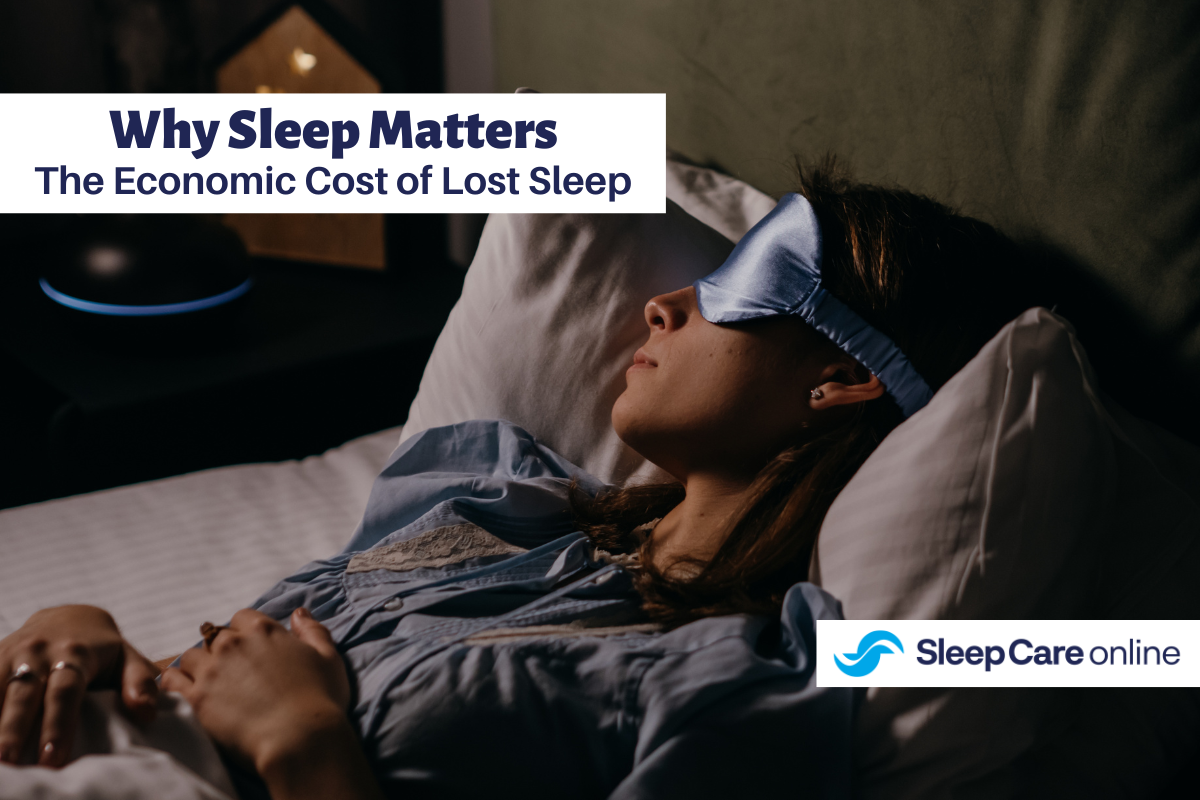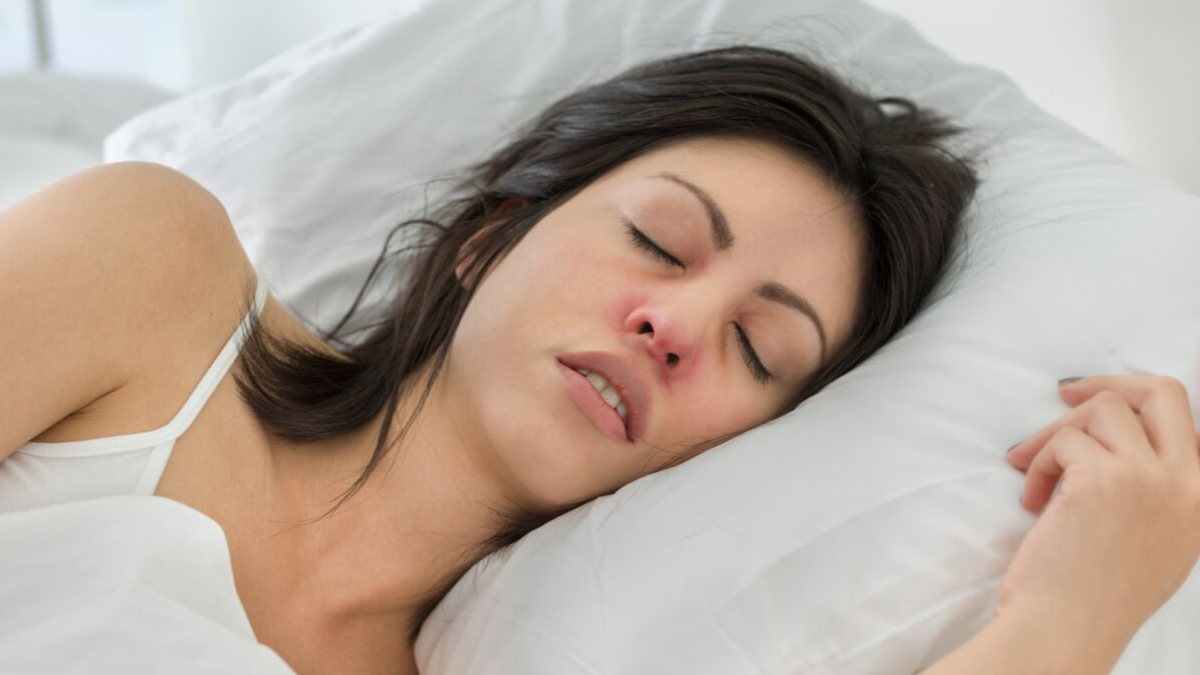Sleep deprivation is the result of not getting enough healthy sleep. Sleep deprivation includes many sleep disorders including insomnia and sleep apnea. Occasionally missing hours or a few nights of sleep is not critical. But, when a person does not get enough proper sleep over an extended period of time, both their physical and mental health are impacted.
Why Do We Need Sleep?
Sleep helps your body and mind recharge. Healthy sleep also helps bolster the immune system. Poor sleep can leave a person vulnerable to infection and illness. Sleep also helps keep us alert during the day. Lack of sleep can lead to poor concentration, memory loss, and even accidents due to reduced response time and cognitive function.
What Are the Different Stages of Sleep?
Stage 1 NREM
During this light sleep stage, we drift in and out of sleep and wake up easily. Our muscle activity slows down and our eyes move more slowly. We may feel sudden muscle contractions during this stage of sleep. This sleep stage eases us into the next stages and prepares our mind and body for relaxation.
Stage 2 NREM
At this stage of sleep, our eye movements stop. Our brain waves also begin to slow down. During this stage, there will be bursts of brain wave activity called sleep spindles. With each progressing stage of sleep our body and mind become more difficult to rouse back awake as we ease into full sleep mode.
Stage 3 NREM
During this stage of sleep muscle, movement, and eye movement have completely stopped. This is the deepest stage of sleep before REM. Even though our brain waves have slowed down, this stage has nearly immobilized our bodies and signals the brain to start dreaming. Some children will experience night terrors or sleepwalking during this stage of sleep.
REM
It is during REM sleep that everything changes. Breathing becomes shallower and more irregular. Our eyes begin to jerk rapidly, our bodies are completely immobile, and our heart rate increases. The first REM sleep period usually occurs about 70 to 90 minutes after we fall asleep. A complete sleep cycle takes 90 to 110 minutes on average. This is the deepest stage of sleep and the stage in which we experience dreams.
What Is the Importance of Getting Enough Sleep?
A good night’s rest provides many benefits to the mind and body. Good sleep helps mend the body. With healthy sleep, your heart and blood vessels undergo repair and restoration naturally. A night of good rest also helps stabilize the metabolism, helping you stay on track with weight and your body’s daily functions. With rest comes an alert mind that is ready to perform. You already notice that a good night’s rest leaves you ready for the day and mentally refreshed.
What Happens in Sleep Deprivation?
When we don’t get enough sleep, our minds and bodies become sleep-starved. That means when we try to sleep, we never reach that critical REM stage that is so beneficial for recharging. Sleep deprivation leaves us lingering in the early stages of sleep, so we then feel groggy the next morning. Long-term patterns of sleep deprivation can lead to:
- Chronic headaches
- Mood swings and irritability
- Lack of concentration or focus
- Forgetfulness
- Excessive fatigue
What Are the Effects of Sleep Deprivation on The Body?
Without the proper amount of healthy sleep, our bodies begin to suffer. We become more likely to gain weight as our metabolism begins to disorient. It is also more likely that we become less physically active during the day as our body is drained from lack of sleep. We may become sicker more often as our compromised immune system leaves us weakened against common germs that we can normally fend off if we had enough sleep.
Sleep and Health
Sleep and Obesity & Hunger
Sleep deprivation can lead to weight gain and increased hunger. There are a number of reasons as to how or why someone may gain weight. Ghrelin and leptin are the hormones that signal the body’s hunger and fullness cues, respectively. During sleep deprivation, ghrelin levels are increased while leptin levels are decreased. This leaves you feeling hungrier and less full. This eventually leads to overeating and weight gain. People who suffer from sleep deprivation also turn to food for comfort.
Sleep and Mental Health
Sleep deprivation takes its toll on mental well-being. You may find that sleep loss leaves you with an inability to focus on daily activities such as work. You may begin to experience memory loss. Poor sleep can also make you irritable and moody. Over time, you can become more susceptible to mental illnesses such as depression and anxiety. Overall, sleep loss leaves the mind vulnerable to a disabling loss in mental wellness.
Sleep and Physical Health
Poor sleep impairs your ability to repair itself and to perform at your best physically. You may find that lack of sleep has impacted your ability to perform regular exercise routines. Increased drowsiness during the day makes you less inclined to exercise or to do anything that physically exerts your already depleted energy.
Once you begin ignoring healthy fitness routines due to excessive tiredness from lack of sleep you further increase the risk for other health issues.
Sleep and Heart Diseases
Extended periods of sleep deprivation throw a number of bodily functions off-balance. An example is the overproduction of cortisol and cytokines; increased levels of both have been linked with an increased risk of cardiovascular disease. Good diet and exercise are only part of your best practices for heart health. Good sleep is also critical. Losing sleep eventually puts a greater strain on your heart function. Someone who already has heart issues is especially at risk.
Sleep-Related to Diabetes and Blood Pressure
Adequate sleep helps your body recharge by balancing hormone levels. Cortisol, or the stress hormone, plays an important role in a number of functions, including the sleep-wake cycle and blood pressure regulation. If the sleep-wake cycle is compromised, cortisol levels fluctuate, which could result in an increased risk of high blood pressure.
Another hormone regulated by sleep is insulin. Insulin allows our bodies to properly absorb sugar from food. Chronic lack of sleep impairs insulin’s ability to do its job, which can cause blood sugar levels to rise. This could ultimately lead to Type 2 diabetes.
Sleep and The Immune System
Sleep and immune health go hand-in-hand. According to one study, continued lack of sleep can increase the production of immune cells called cytokines. While these cells generally help your body fend off viruses and bacteria, overproduction of them can leave you defenseless, even against the common cold. If you find that you are sick more often, it may not be accidental. Your lack of healthy sleep may be depleting your body’s natural defense system against germs.
What Are Sleep Disorders?
Sleep disorders that cause sleep deprivation include insomnia and sleep apnea. Insomnia is the inability to fall asleep or to only sleep for short periods of time. Insomnia is more apparent and those suffering from the sleep disorder are more likely to seek help.
Sleep apnea occurs when the airway periodically closes during sleep causing you to awake throughout the night. While both conditions lead to sleep deprivation, sleep apnea is less noticeable and often goes undiagnosed.
How Do I Diagnose Sleep Apnea?
Polysomnography
Polysomnography is an in-lab sleep study that can diagnose obstructive sleep apnea and determine its severity. The test requires an overnight stay in a lab where equipment that monitors sleep patterns is affixed to the patient.
In-lab studies can evaluate breathing patterns, brain waves, and oxygen saturation levels during the overnight stay.
At-Home Sleep Test
Fortunately, at-home sleep tests can provide accurate results in the comfort of your own bed. They are the preferred option over a polysomnography for anyone who does not want to participate in a lab study. Here is how a home sleep test works:
- With the Complete Care Package, schedule a 10-minute telehealth visit with a healthcare provider to discuss your symptoms, upcoming sleep study, test results, and treatment options.
- A multi-night, disposable home sleep apnea test is mailed to your home to be completed at your convenience.
- A physician analyzes the sleep data and provides a prescription if needed.
- Schedule an optional follow-up appointment (additional fee applies).
- We connect you to sleep experts who can offer customized sleep therapy options, assistance in equipment purchase, and initial set-up.





